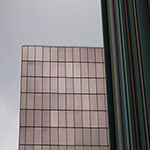Euroacademia Conferences
 Europe Inside-Out: Europe and Europeanness Exposed to Plural Observers (9th Edition) April 24 - 25, 2020
Europe Inside-Out: Europe and Europeanness Exposed to Plural Observers (9th Edition) April 24 - 25, 2020 Identities and Identifications: Politicized Uses of Collective Identities (9th Edition) June 12 - 13, 2020
Identities and Identifications: Politicized Uses of Collective Identities (9th Edition) June 12 - 13, 2020 8th Forum of Critical Studies: Asking Big Questions Again January 24 - 25, 2020
8th Forum of Critical Studies: Asking Big Questions Again January 24 - 25, 2020 Re-Inventing Eastern Europe (7th Edition) December 13 - 14, 2019
Re-Inventing Eastern Europe (7th Edition) December 13 - 14, 2019 The European Union and the Politicization of Europe (8th Edition) October 25 - 26, 2019
The European Union and the Politicization of Europe (8th Edition) October 25 - 26, 2019 Identities and Identifications: Politicized Uses of Collective Identities (8th Edition) June 28 - 29, 2019
Identities and Identifications: Politicized Uses of Collective Identities (8th Edition) June 28 - 29, 2019 The European Union and the Politicization of Europe (7th Edition) January 25 - 26, 2019
The European Union and the Politicization of Europe (7th Edition) January 25 - 26, 2019 7th Forum of Critical Studies: Asking Big Questions Again November 23 - 24, 2018
7th Forum of Critical Studies: Asking Big Questions Again November 23 - 24, 2018 Europe Inside-Out: Europe and Europeanness Exposed to Plural Observers (8th Edition) September 28 - 30, 2018
Europe Inside-Out: Europe and Europeanness Exposed to Plural Observers (8th Edition) September 28 - 30, 2018 Identities and Identifications: Politicized Uses of Collective Identities (7th Edition) June 14 - 15, 2018
Identities and Identifications: Politicized Uses of Collective Identities (7th Edition) June 14 - 15, 2018
Constructing New Identities: Images of Socialist Realism and Contemporary Fine Art in Post-Communist Bulgaria
-
-

-
Presentation speakers
- Nina Pancheva-Kirkova, University of Southampton, UK
- Download presentation
Abstract:
The fall of the communist regime in Bulgaria witnessed the end of a grand recit, a metanarrative (Lyotard, 1984) that claimed total knowledge of human history, politics and economy. Socialist Realism, as an aesthetic that supposedly embodies this metanarrative, articulated its pretension as the authentic art form that defined relations in the artworld of the country. The images of Socialist Realism formed a framework of propositions for ‘right’ and ‘wrong’ in fine art in an attempt to construct a collective artistic identity. The collapse of the Communist regime should have also been the collapse of Socialist Realism. Similarly the collapse places fine art and artists, previously and inevitably connected to the Grand Recit through this aesthetic mode, in a new role. The fragmentation of the democratic art world within the country has shaped their search for new ways of legitimizing. Introducing some aspects of a practice based research, this paper explores to what extent did this metanarrative end and what the aftereffects in a post-communist situation are. It argues that Socialist Realism has not been overcome in terms of its functions and status, its images and their interpretations have influenced the debates on the totalitarian past thus affecting contemporary art practices in the country. Through a comparative case study of two artists whose art spanned the Communist and Post-communist era (Svetlin Rusev and Ivan Georgiev), the paper scrutinizes the interpretations of the work and biographies of ‘official’ and alternative artists as one of the main trends that impede the critical debate on Socialist Realism. Their works are discussed in relation to the new visual modes of articulation and the ‘lost identities’. The new “Museum of the Socialist Art” is explored as an intersection of the structure of the debates on communism and the images of Socialist Realism.
-
Related Presentations

Phantasy of Sameness of an Other: Impact of Imagination on Collective Memory in Conflict
- Dmitry Chernobrov

Understanding the Role of Identity Within Processes of Remembrance Using Experimental Approaches in Social and Cognitive Psychology
- Alexander Griffiths
- Malcolm D. MacLeod

Media Communicative Discourse and Identity Crises: EU and USA
- Galina Klimova
- Oxana Medvedeva















